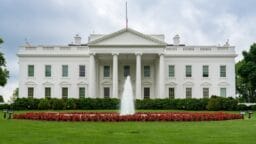Federal Jury Convicts New York Man of Economic Espionage
ROCHESTER, N.Y. — A federal jury has rendered a verdict against a resident of Steuben County, charging him with economic espionage and the theft of vital U.S. technology.
Ji Wang, aged 63 and hailing from Painted Post, New York, was found guilty of illicitly obtaining sensitive information regarding Fiber Laser research from Corning Incorporated.
This act transpired while he was engaged in a military defense project, with intentions to surrender that proprietary information to the Chinese Government to facilitate the establishment of a business.
Wang, originally from China, immigrated to the United States in 1998 to serve Corning Incorporated. Between 2002 and 2007, he participated in a collaborative research and development initiative, financed by the Defense Advanced Research Projects Agency (DARPA) and Corning.
This ambitious 5-year, $11.4 million project aimed to pioneer optical fibers designed for high-powered lasers, with applications spanning both military and commercial arenas. DARPA’s objective was to create laser weaponry capable of neutralizing drones and missiles.
As reported by the Department of Justice, on July 1, 2016, Wang absconded with hundreds of files containing confidential data produced during the DARPA project.
This included manufacturing technologies regarded as trade secrets, which would have empowered him to replicate a variety of specialty optical fibers, notably for fiber lasers.
Authorities indicated that just ten days prior to the theft of these trade secret files, Wang submitted an application for China’s Thousand Talents Plan Award.
This initiative, spearheaded by the Chinese government, aimed to attract overseas experts in scientific and technological fields.
Wang was engaged in discussions with Chinese officials to launch a specialty fiber enterprise in China. In one of his business propositions, he suggested that the specialty fibers could have military applications.
Had this proposal materialized, he could have secured tens of millions in investment capital. These negotiations unfolded between 2014 and 2017, according to U.S. officials.

Ultimately, U.S. law enforcement hindered Wang’s ambitions, ensuring he could not exploit the pilfered technology to initiate his business.
The conviction is the culmination of an extensive investigation conducted by Special Agents from the Federal Bureau of Investigation.
Wang faces multiple charges: two counts of economic espionage, one count of theft of trade secrets, one count of attempted economic espionage, and one count of attempted theft of trade secrets.
Economic espionage bears a maximum sentence of 15 years in prison, while theft of trade secrets carries a potential 10-year incarceration. Sentencing is slated for April 15, 2026.
Assistant Attorney General for National Security John A. Eisenberg, alongside U.S. Attorney Michael DiGiacomo for the Western District of New York, proclaimed the verdict on November 5, 2025.
Source link: Cnycentral.com.






